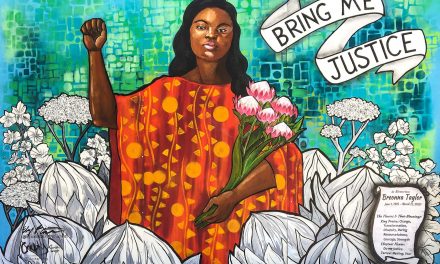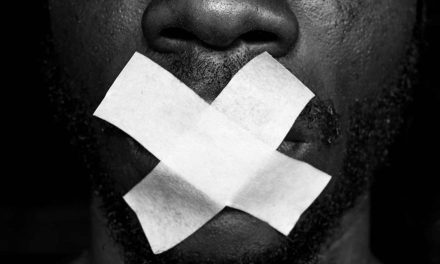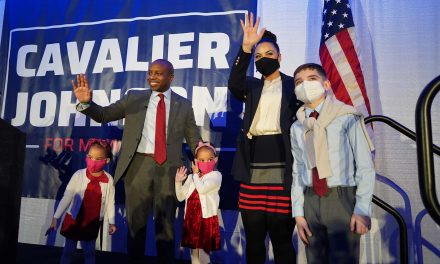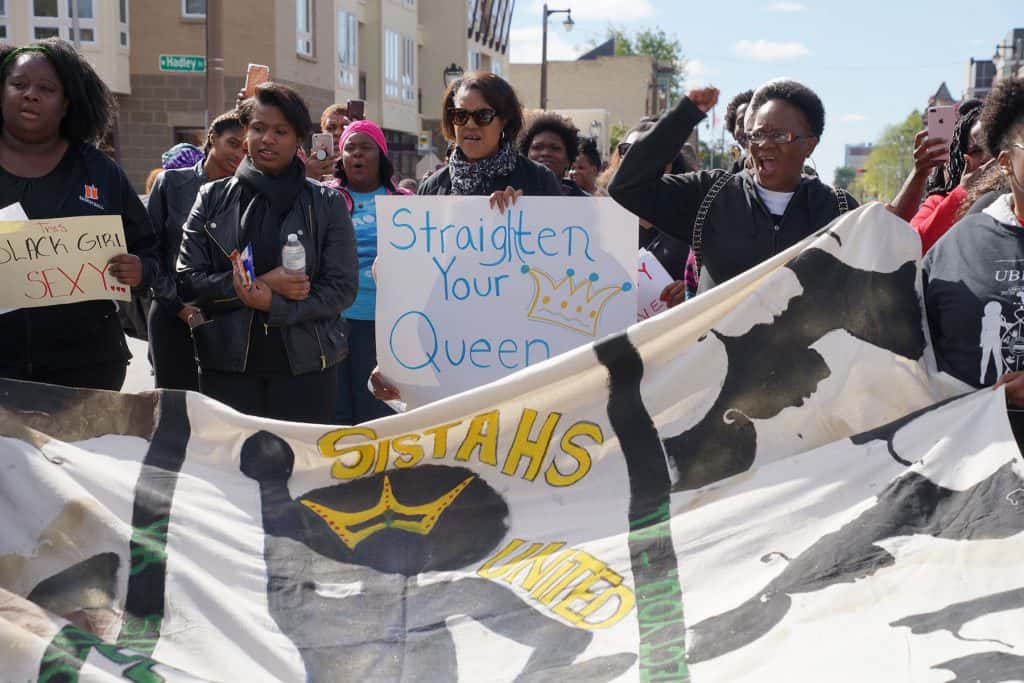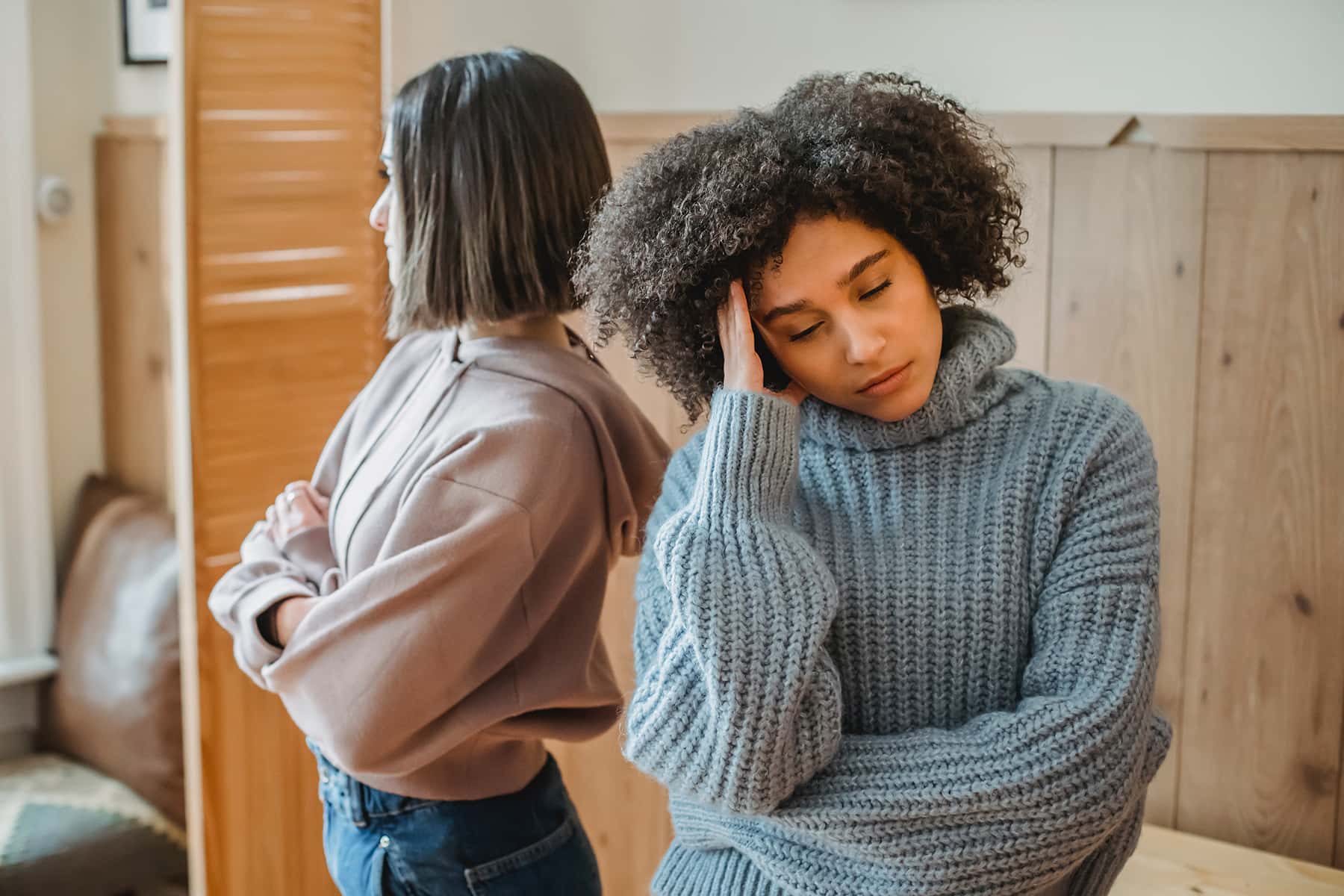
I keep hearing people say that they are tired of talking about race and racism all the time. They claim that it is causing discord and division and making people feel a great deal of discomfort.
My response to this, has grown out of a feeling of frustration. I am tired of people claiming that their discomfort is more important than mine. Your discomfort is related to a conversation about racism, while mine is related to dealing with racism all the time. Your last seven years of hearing that Black Lives Matter pales in comparison to my lifelong battle to make sure that Black Lives Matter.
Many in the majority population have grown disenchanted with hearing about racism while ignoring that people of color continue to deal with racism and the debilitating impact of it.
Some people are using arguments about Critical Race Theory to muddy the waters and distract us from directly dealing with systemic racism.
I am having a difficult time trying to listen, respectfully, to the concerns of people who are bothered by “talk” about racism. You only have to concern yourself with “talk” while the victims of racism deal with all of the ugly ramifications of racism.
My response to people who are feeling discomfort about this has evolved to a point where I just want to say, “get over yourself.” Your discomfort is microscopic as compared to being victimized by racism. It makes me sick to the stomach that I have to listen to you whining about your discomfort when I know that your discomfort is temporary and transient while racism is ever-present.
Those who claim their children will be harmed by hearing about racism are deluding themselves. I challenge you to ask your grandparents and others if the “bad ole days” as we call it, and the “good ole days” as you call it, damaged them at all. Did they feel guilt when they drove you to schools to stand on the corner shouting racial slurs at Black and Brown children? Did they feel guilt when they denied Black people the right to live in all-White communities? Did they feel guilt when they stood by and watched lynch mobs murder Black people in the most public way possible?
If you feel guilt, maybe it is justified. I know I would certainly feel guilt if I had acted in that way. I know I would feel guilt if my family had intentionally kept others from the same opportunities they enjoyed because of their race. Guilt is not a bad thing.
Guilt comes out of an acknowledgement of something we should not be proud of. America refuses to acknowledge its bad deeds. You cannot feel guilty if you will not even admit the truth. Maybe that is the point. Maybe keeping that dirty laundry hidden is the way out of your feelings of discomfort. It solves your problem of guilt, but does nothing for my problems dealing with racism.
What is clearly not understood by those fighting the teaching of an accurate history of America, is that keeping these things out of textbooks and classes does not make it go away. You cannot simply erase these things, despite the fact that for a majority of American history, including nowadays, these things have not been generally included in American schools. Instead of complaining in school board meetings, you need to pick up and go through your children’s textbooks and see what is in them. Read the state social studies standards while you are at it.
When your discomfort level dissipates because you have forced your school board to ignore this teaching, my discomfort will continue. I will not just quit because you are then satisfied with maintaining the status quo.
I have heard time and time again that White people fear change. I hear that learning this truthful version of American history makes White people shake in their boots. Is it fear or is it more about shame? Are you so ashamed of your country that you want to keep your head buried in the sand?
The fear I hear about is not fear in the classic sense. It is more a sense of loss. People fear losing. Losing the power to lie about American history. Losing the power to dictate to people of color that they stay in their “place.” Losing the ability to trick the world into believing that America stands for things, when it does not stand for them for millions of its residents. Losing the battle to keep people of color from positions of authority in corporate spaces, elective office, and any place where the power dynamics are clearly imbalanced. That is what I see, when I hear people tell me that White people are afraid.
There is no validity to the assumption that people of color are going to treat White people anything like they have treated them once they get into positions of power. We have more people of color in elected positions than at anytime in American history. How have those elected officials treated White people? Has there been a systematic attack on the White community? No. Of course there is not, because that will never happen.
Just because bullies in this country did and continue to do horrible things does not automatically mean that the victims of bullies will act in the same way if they get power.
The White majority in this country fear losing the power to control this country without giving more than short shrift to the voices of those in the global majority.
Here in Wisconsin according to the 2020 decennial census, Blacks account for just 6.7 percent of the residents. This group of 366,508 non-hispanic Blacks, cannot possibly bring fear to the 4,634,018 (85.1% of state residents) non-Hispanic Whites in Wisconsin. Of the 72 counties in the state, Blacks peak at 30.6 percent in Milwaukee County and the second highest percentage is 13.3 percent in Racine County. The next three on this list are: Kenosha County (7.9%); Dane County (5.7%); Rock County (5.5%). There is not anther county above 3.4 percent. So what could White people fear, politically or otherwise in Wisconsin from Black people?
Nationally non-Hispanic Blacks are only 14.8 percent of the national population, accounting for 39.9 million of the 331.4 million Americans. We represent 37.8 percent of Mississippi residents, 34.5 percent of Georgia residents, 33.5 percent of Louisiana residents, 27.1 percent of the residents of Alabama, and 26.6 percent of South Carolina residents. Blacks are not a quarter or more of the residents of any other state.
How can such a small community have such power to create fear in a population that outnumbers it by five to one? It is much less fear than it is guilt. We barely learn these things in school but we know racism has a long history in this country. How can learning the details make it worse?
Maybe if America steps up to the plate and has an honest conversation, it might play out differently than many assume.
I want to have some room to exhale. How can I exhale, knowing that millions of people are deliberating whether American history classes should be honest or remain dishonest? How can I exhale when people say children of color will feel inferior by learning this history, when the nation already tells them they are inferior?
Listening to what people are saying about their discomfort is a good thing. However, when that conversation is a one way street, and they refuse to listen to what people of color express, we are not making progress. We are spinning the wheels of the American vehicle that has been stuck in neutral for hundreds of years.
What many call substantial progress, the end of Jim Crow laws, opening up professional sports and television and movies to people of color, making discrimination illegal, all appear on the surface to be real substantial progress. If we look deeper we see that a great many Black people are worse off today than when Dr. King was murdered. Some have and continue to do well economically, but the gaps from the 1960s persist.
We do not measure success anecdotally in America. We use facts and figures mostly, without asking people how they see the racial climate of our nation. In those rare instances when we do, we find out things that point to a lack of progress.
A recent Pew Research Center survey asking if the declining share of White people in the country is good or bad showed that 26 percent of Whites said it is somewhat bad or very bad. One in five Blacks agreed. Among respondents over 65, 32 percent said it is somewhat bad or very bad, while just 13 percent of those 18 to 29 agreed with this assessment. Nine percent of respondents overall say it is somewhat bad or very bad thing.
What convinces so many to think that a growing diversity is such a bad thing? We have never embraced a diversity of people in this country. We can sit and watch White men on horseback grabbing Haitians at the border, harking back to the days of enslavement of Blacks, and we simply get empty platitudes from most leaders saying, “this is not who we are.” This is very much who America is. Similar responses from when we separated Latino families at the border, locking children up in cages and “losing” their parents shows who America really is.
Do these things make people feel discomfort? It is not just about history. In many ways the past is the present.
When asked in August by Pew about public attention to the history of racism in the U.S. being good for society the results tell us a lot. Among Whites, 32 percent said it is somewhat bad or very bad. For Black respondents only 11 percent agreed. On a partisan level, 46 percent of Republicans and 9 percent of Democrats found it to be somewhat bad or very bad. Black respondents overwhelmingly find it to be a very god or somewhat good (75%) while only 46 percent of Whites, 59 percent of Hispanics and 64 percent of Asians felt is was good for the nation.
There are large differences even among Republicans based on age. Of the 18 to 29 cohort, 62 percent say the increased attention is very good or somewhat good. Of those 65 and over just 18 percent of Republicans find it very good or somewhat good. Just 30 percent of Republicans 18 to 29 find it to be somewhat bad or very bad, while a majority (54%) of Republicans 65 and older agree.
Older Democrats feel quite differently than Republicans. Among those 65 and older, 80 percent find this extra attention is very good or somewhat good, the exact same as 18 to 49 year-old Democrats.
When looking at these surveys, it is obvious that there is no consensus among Whites. Older Whites of the Republican Party feel differently than older Whites of the Democratic Party. The older Democrats are much more likely to be aligned with younger Democrats. Not so with Republicans.
When it comes to solutions to the racial ills of Americans there is a wide gap based on race and politically as well. Only 18 percent of Whites feel American institutions are fundamentally biased against some racial groups and need to be rebuilt. On the other hand, 58 percent of Blacks feel this way.
Among Whites, 58 percent believe in the status quo and say nothing needs to be done. Among Republicans, 79 percent believe little or nothing needs to be done to address these issues. For Democrats, 40 percent believe that the institutions need to be rebuilt and 33 percent believes they can be fixed by working within the current systems. This aligns with the views on racial progress. Only 29 percent of Democrats feel a lot of progress has occurred over the past 50 years, while 71 percent of Republicans feel that way. Just a tiny 4 percent of Democrats believe nothing needs to be done about racial progress and 30 percent of Republicans feel this.
There are large gaps in the solutions offered by race and age. When looking at the group that feels American institutions need to be rebuilt, 64 percent of Blacks 18 to 49 years old feel this but only 34 percent of Hispanics and 26 percent of Asians and 25 percent of Whites in that age group hold that view. For those over 50 years of age, More than half (52%) of Blacks see American institutions being fundamentally flawed and in need to rebuilding but just 20 percent of Hispanics and 12 percent of Whites of that age group feel that way.
The divisions look to have a great deal to do with generational differences of opinion. Older Whites seem to be more divided than younger Whites. Some of these older Whites, according to the Pew survey, obviously appear to fall into the category that see little to no value in the current racial reckoning. I think it is safe to guess that these are people who were probably not bothered by the racial order in place prior to the Civil Rights Movement changing America.
When you trace the forces that are attempting to pushback against the racial reckoning, they skew towards an older generation. These folks are trying to hold on to the old racial order. They ignore that many in their community, particularly younger Whites, disagree with them.
The voices of students have been mostly ignored in these conversations taking place across the country. If we begin to include them I think the craziness of the arguments taking place will be impacted.
What do they want to be taught? Do they think they will feel guilt or inferiority? The only way to know for sure is to ask them. I know many of them have been convinced to see the world in the way their parents and grandparents do, but I have found a lot that reject those viewpoints and value diversity.
This is their future. They should have a voice. If they do not feel discomfort, why should the discomfort of adults impact what they learn?
© Photo
Lіzа Summеr

